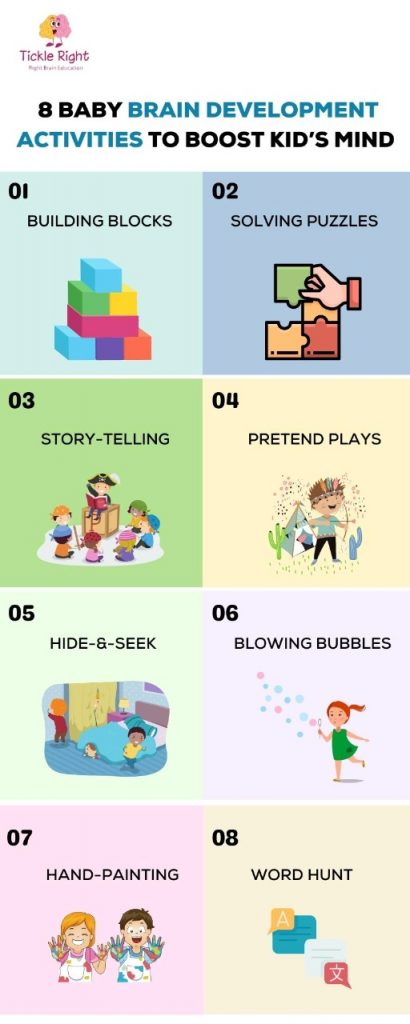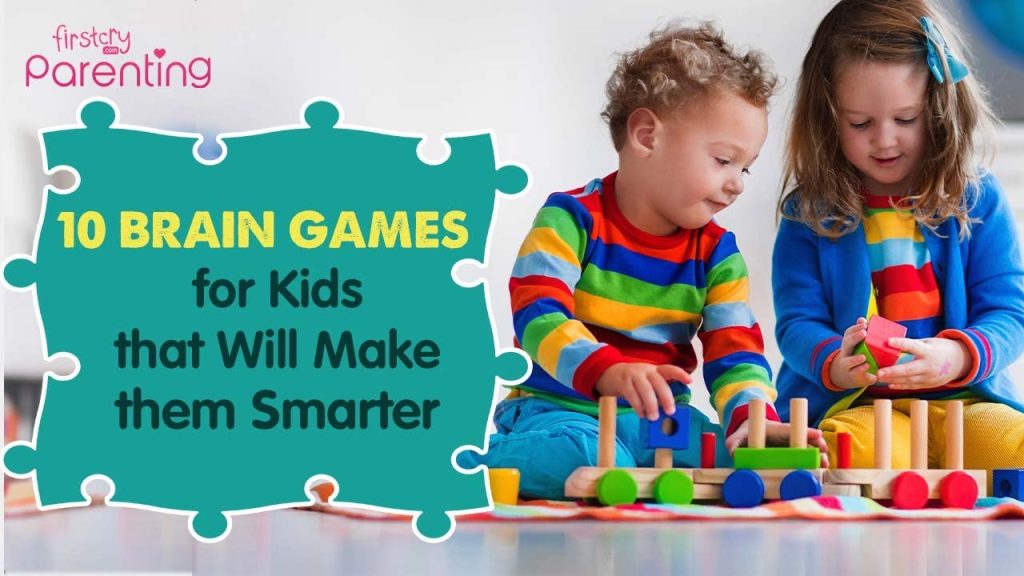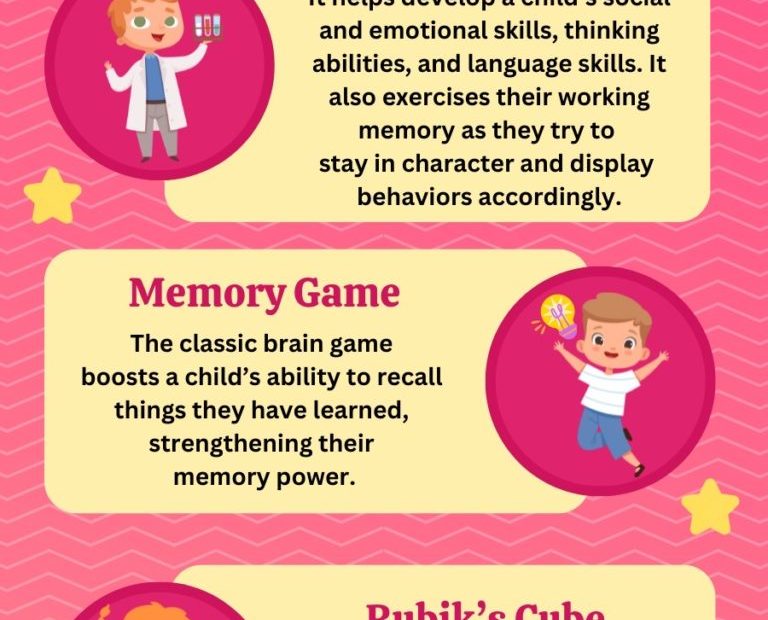Hey there! In this article, we’re going to talk about how brain games can actually improve your child’s development. We’ll be discussing the benefits of these games and how they can positively impact your child’s cognitive skills and problem-solving abilities. So, get ready to discover the exciting world of brain games and learn how they can benefit your little one’s growth and development!
Improving Child Development through Brain Games
Childhood is a critical stage in a person’s life when their brain undergoes significant growth and development. As parents and educators, it is important to provide children with an environment that stimulates their cognitive, emotional, and social skills. One effective way to achieve this is by incorporating brain games into their daily routine. Brain games not only offer entertainment but also have a profound impact on a child’s overall development. In this article, we will explore the stages of child development, the benefits of brain games, different types of brain games, and how to integrate them into daily life.

Stages of Child Development
Child development can be broadly categorized into several stages, each characterized by distinctive milestones. These stages include infancy, toddlerhood, preschool years, school-age, and adolescence. Understanding these stages is crucial for parents and educators to provide appropriate brain games that align with the child’s level of development.
Key Milestones in Child Development
Child development is marked by several key milestones that vary across different domains, such as cognitive, physical, language, and social-emotional. For example, in the cognitive domain, a milestone may include a child’s ability to solve simple puzzles or understand cause and effect relationships. By targeting these milestones through brain games, we can further enhance a child’s development in these areas.
Factors that Affect Child Development
Child development is influenced by a variety of factors. These factors can be categorized into genetic, environmental, and experiential influences. While genetics play a role in a child’s development, the environment and experiences they are exposed to have an equally significant impact. Brain games provide a nurturing environment that stimulates the child’s mind and helps them reach their full potential.
Importance of Brain Games
Brain games play a crucial role in optimizing a child’s brain development. By engaging in brain games from an early age, children can reap a wide range of benefits that enhance their cognitive, emotional, and social skills.
Enhancing Cognitive Skills
One of the key benefits of brain games is their ability to enhance cognitive skills. These games challenge children’s thinking abilities, problem-solving skills, and memory retention. For instance, puzzles and riddles require children to think critically, analyze patterns, and exercise their logical reasoning. By participating in brain games regularly, children can improve their cognitive abilities and become more efficient learners.
Improving Problem-Solving Abilities
Problem-solving is an essential skill that children need to navigate through various challenges in life. Brain games provide a safe and enjoyable platform for children to practice problem-solving. Strategy-based games, for example, require children to formulate plans, make decisions, and evaluate their consequences. Through these games, children gradually develop a problem-solving mindset that they can apply to real-life situations.
Boosting Memory and Concentration
Brain games also have a significant impact on a child’s memory and concentration abilities. Memory games, such as matching cards, stimulate memory recall and strengthen children’s ability to retain information. These games help expand their working memory, which is crucial for academic success. Additionally, brain games require focused attention, improving a child’s concentration span and ability to stay focused on tasks.
Types of Brain Games
Brain games come in various forms, catering to different developmental areas and skills. Let’s explore some common types of brain games that are beneficial for children.

Puzzles and Riddles
Puzzles and riddles are classic brain games that have been enjoyed by people of all ages for generations. These games challenge children to think creatively, analyze information, and discover solutions. Jigsaw puzzles, crossword puzzles, and riddles stimulate critical thinking and problem-solving abilities while providing an entertaining experience.
Memory Games
Memory games are designed to enhance a child’s memory skills. These games typically involve memorizing and recalling information. Matching cards, memory matching games, and word associations are all excellent examples of memory games. Regular engagement with these games can improve a child’s memory capacity and retrieval abilities.
Strategy-Based Games
Strategy-based games require children to plan, strategize, and think ahead. These games often involve decision-making, resource management, and anticipating outcomes. Board games like chess, checkers, and strategy-based video games like Minecraft provide opportunities for children to develop problem-solving and strategic thinking abilities.
Benefits of Brain Games
The benefits of brain games extend beyond the immediate enjoyment they provide. Let’s explore some long-term advantages of incorporating brain games into a child’s routine.

Stimulating Brain Development
Brain games stimulate various areas of the brain, promoting healthy brain development. As children engage in brain games, their neural connections strengthen, facilitating faster and more efficient information processing. This stimulation helps create a foundation for lifelong learning and cognitive growth.
Enhancing Creativity and Imagination
Brain games often involve creative thinking and problem-solving, fostering imagination and innovation in children. By challenging their minds and encouraging them to think outside the box, brain games inspire children to be more creative in their approach to challenges and tasks.
Increasing Attention Span
In today’s digital age, children are often exposed to stimuli that can be distracting. Brain games, on the other hand, require focused attention and concentration. Regular engagement in brain games can help improve a child’s attention span, enabling them to stay focused on tasks for longer periods of time.
Impact on Cognitive Skills
The benefits of brain games extend to various cognitive skills that are crucial for a child’s academic and personal development.

Enhanced Reasoning and Logic
By engaging in brain games, children strengthen their reasoning and logical thinking abilities. These games provide opportunities to analyze information, draw conclusions, and make connections. As a result, children become more adept at problem-solving and critical thinking, skills that are essential for success in school and beyond.
Improved Attention and Focus
Brain games require children to pay attention, concentrate, and stay engaged. As a result, their ability to sustain attention and focus on tasks improves. This skill is particularly important in an educational setting, where children need to concentrate on lessons and complete assignments.
Better Problem-Solving Abilities
Brain games provide a structured environment for children to practice problem-solving. As they encounter different challenges and obstacles within the games, children learn to approach problems from different perspectives and develop effective problem-solving strategies. These problem-solving skills then extend to real-life situations, empowering children to overcome difficulties and think critically.
Effect on Social Skills
Brain games also have a positive impact on a child’s social development, promoting important skills necessary for successful interpersonal relationships.

Collaboration and Teamwork
Many brain games require collaboration and teamwork, encouraging children to work together towards a common goal. These games teach children the value of cooperation, compromise, and effective communication. By participating in collaborative brain games, children develop essential social skills that strengthen their ability to form and maintain positive relationships.
Improved Communication Skills
Brain games often involve verbal interaction and communication. Children learn to express their thoughts, articulate ideas, and listen actively. These games improve vocabulary, language fluency, and verbal reasoning, fostering effective communication skills that are essential for academic and social success.
Enhanced Empathy and Perspective-Taking
Some brain games involve role-playing or perspective-taking, allowing children to understand different viewpoints and develop empathy. By playing characters and adopting different roles, children learn to see the world from various perspectives, fostering empathy, and enhancing their ability to understand and relate to others.
Influence on Emotional Development
Brain games can have a significant influence on a child’s emotional development, helping them navigate and regulate their emotions effectively.
Regulating Emotions
Brain games often involve varying degrees of challenge and frustration. As children encounter obstacles and setbacks within the games, they learn to regulate their emotions, manage frustration, and persevere through difficult situations. These emotional regulation skills are valuable in daily life, helping children cope with stress and maintain emotional well-being.
Building Resilience
Brain games provide a safe and controlled environment for children to experience failure and setbacks. Through repeated trials and errors, children learn to persevere, bounce back from failures, and develop resilience. This resilience carries over to real-life situations, equipping children with the ability to face challenges with confidence and determination.
Reducing Stress and Anxiety
Engaging in brain games can have a therapeutic effect on children, reducing stress and anxiety levels. The immersive nature of these games helps children relax, unwind, and redirect their focus, providing a break from daily pressures. Reduced stress and anxiety contribute to overall emotional well-being and create a positive mental state for children.
Integrating Brain Games into Daily Routine
To maximize the benefits of brain games, it is essential to integrate them into a child’s daily routine. Here are some practical ways to incorporate brain games seamlessly into everyday life.
Creating a Structured Playtime Schedule
Set aside dedicated time for brain games each day and create a structured playtime schedule. This ensures that brain games are given importance and become a regular part of a child’s routine. By making brain games a consistent activity, children are more likely to reap the benefits and experience holistic development.
Incorporating Brain Games in Educational Activities
Integrate brain games into educational activities to make learning more interactive and engaging. For example, incorporate puzzles and riddles to reinforce learning concepts or use strategy-based games to teach problem-solving skills in a fun and immersive manner. By connecting educational objectives with brain games, children develop a positive attitude towards learning.
Making Screen Time Interactive and Beneficial
While excessive screen time should be avoided, technology can be leveraged to provide interactive and beneficial brain games. Choose age-appropriate educational apps or online platforms that offer brain games designed to enhance cognitive skills. Engage with your child during screen time, discuss the games, and encourage them to reflect on their experiences.
Choosing Age-Appropriate Brain Games
When selecting brain games for children, it is important to consider their developmental milestones, interests, and abilities.
Considering Developmental Milestones
Align brain games with a child’s developmental stage and specific milestones. Each stage of development presents distinct needs and challenges. Choose brain games that are suitable for their age group and target the specific skills and abilities they are currently developing.
Adapting Games for Different Age Groups
Adjust the complexity and difficulty level of brain games to match the child’s age and capabilities. Start with simpler games and gradually introduce more challenging ones as the child progresses. Adapting games for different age groups ensures optimal engagement and prevents frustration or disinterest.
Aligning Games with Individual Interests and Abilities
Observe your child’s interests, strengths, and passions when selecting brain games. Personalizing their gaming experience encourages motivation, enjoyment, and active participation. Matching games with their individual interests and abilities increases the likelihood of sustained engagement.
Conclusion
Brain games are a powerful tool for improving child development. By incorporating brain games into a child’s daily routine, parents and educators can facilitate cognitive, emotional, and social growth. The benefits of brain games extend beyond entertainment, offering long-term advantages such as enhanced cognitive skills, improved attention span, and strengthened social abilities. Providing a stimulating environment and embracing brain games can help children reach their full potential and set them on a path to holistic growth. So, why not introduce brain games into your child’s routine today and embark on a journey of limitless possibilities?
